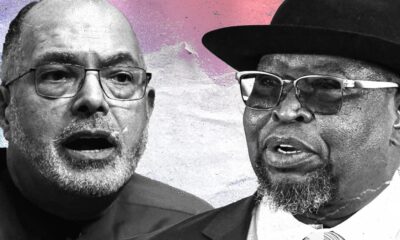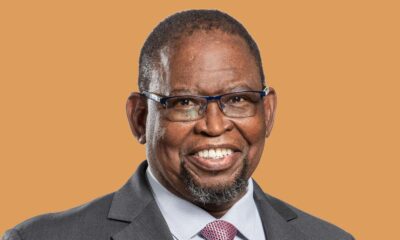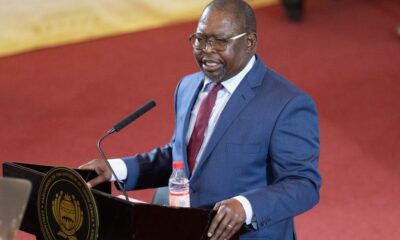News
The R1.8 Trillion Question: Godongwana’s Plea to Business to Fire Up SA’s Economy

The day after delivering a budget statement that walked a tightrope of fiscal constraint, Finance Minister Enoch Godongwana looked across the room at Cape Town’s business leaders and posed a challenging question: Where is your faith?
In a candid address, the minister pointed to a staggering figureR1.8 trillion. That’s the record amount of cash sitting on the balance sheets of South African companies, a war chest that has ballooned from R1.1 trillion in 2019. His message was clear: for the economy to truly fire, the private sector must be willing to spend it.
A Partnership Strained by Hesitance
Godongwana’s core argument is that South Africa cannot build a prosperous future on public sector effort alone. He reiterated the need for a stronger collaboration between government and business to stimulate growth and create the jobs the country so desperately needs.
He pushed back against some of the common reasons cited for business hesitance, particularly political instability. “Look at Europe,” he said, pointing to countries like France and the Netherlands where forming a government can take months. “In South Africa, we chose a president in two weeks.”
However, the minister was notably more frank on another critical issue. “If they refer to crime,” he admitted, “yes, that is concerning.” It was a sober acknowledgment that this fundamental failure of the state is a legitimate anchor on business confidence, one that he confessed keeps him up at night.
Unlocking the Trillion-Rand Logjam
The minister’s vision is one of catalytic investment. He highlighted ongoing, though small-scale, efforts to attract private capital into public infrastructure projects, hoping it would spur wider investment elsewhere in the economy.
His appeal was simple and direct: “If we can unlock that R2 trillion sitting out there, we can grow the economy, create jobs, and reduce poverty. Everything else follows.” It was a plea to move from a defensive, cash-hoarding posture to an offensive, growth-seeking one.
Lower Inflation, Future Rate Cuts, and a Denial of Tension
Beyond the call to action, Godongwana shed more light on one of the key announcements from his Medium-Term Budget Policy Statement: the official lowering of South Africa’s inflation target to 3%.
He defended the move, stating that with inflation already hovering around that level, a lower target would not “choke the economy.” The long-term benefit, he explained, is permanently lower interest rates, which would boost household spending and business investment.
In a hint of what may be to come, he speculated that the South African Reserve Bank’s Monetary Policy Committee could announce an interest rate cut as soon as next Thursday. This aligns with recent comments from SARB Governor Lesetja Kganyago, who suggested a series of cuts could be on the horizon.
Addressing speculation of a rift between himself and the central bank governor, Godongwana dismissed it with a quippy reveal that they have known each other for 35 years. He framed their different public stances as a function of their roles: the governor can speak freely on monetary policy, while the finance minister must navigate the political landscape.
The minister’s overall message was one of cautious, challenge-laden optimism. The government is trying to clear the path by stabilizing finances and taming inflation. Now, he argues, the ball is in the court of the country’s businesses to step onto the field and play.
{Source: MoneyWeb}
Follow Joburg ETC on Facebook, Twitter , TikTok and Instagram
For more News in Johannesburg, visit joburgetc.com

























